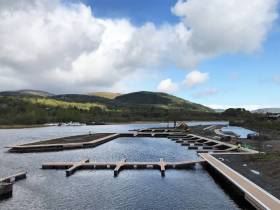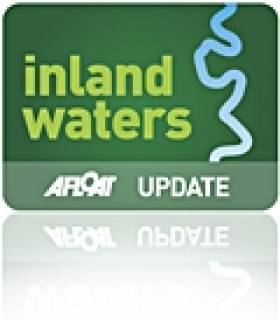Displaying items by tag: Derg Marina
Redeveloped Derg Marina Opens After Planning Battle
A €2.3 million marina on Lough Derg that was the subject of a planning battle earlier this year is now open for business, Afloat.ie has learned.
Derg Marina across from Killaloe is the first Ronautica-built marina in Ireland and was developed by Gary McNamara, son of Dolores McNamara who scooped €115 million in the EuroMillions lottery in 2005.
According to The Irish Times, the site — which had been a “little-used” marina — was purchased four years ago for €1.7 million, well ahead of the €550,000 guide price.
Previously the 250-berth marina, with half a kilometre of water frontage, had sold for €8 million in 2006 — but fell into disrepair in the intervening years.
Progress on the redeveloped site had been held up over a planning objection by local resident Clare Quinn, as The Irish Sun reported this past April.
But An Bord Pleanála refused Ms Quinn leave to appeal as she had not shown the approved scheme would differ materially from what was set out in the application for planning permission.
The new Derg Marina has been welcomed by the local Marine Village Residents’ Association, and Afloat.ie understands interest in the new facility among boaters across the Shannon region is high.
“It looks very smart and a big step up for the inland scene,” one boater told Afloat.ie.
Hire Cruiser Hits Killaloe Bridge
The Cruiser was holed and was taking on water.
Killaloe Coast Guard Mobile unit was tasked to Derg Marina with salvage pumps while the Coast Guard Rescue Boat also responded according to a Coast Guard blog report here.
It was decided that in order to save the vessel from sinking that the Coast Guard would run the cruiser aground in the shallow water at nearby Ballyvalley.






























































